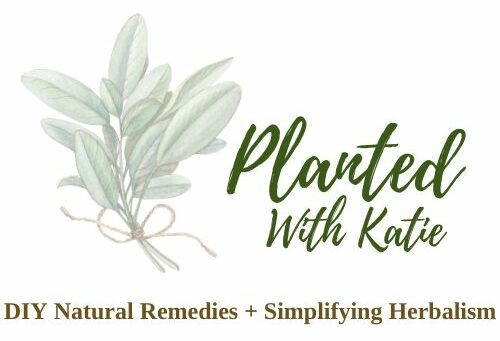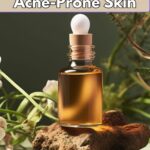Best Natural Facial Moisturizer For Acne Prone Skin
Finding the Best Natural Facial Moisturizer For Acne Prone Skin can feel overwhelming. Many products on the market promise to hydrate and improve your skin, but they often include heavy oils or harsh chemicals that can do more harm than good. These ingredients may clog pores, irritate sensitive skin, and even lead to more acne breakouts, making it hard to know which products truly work.
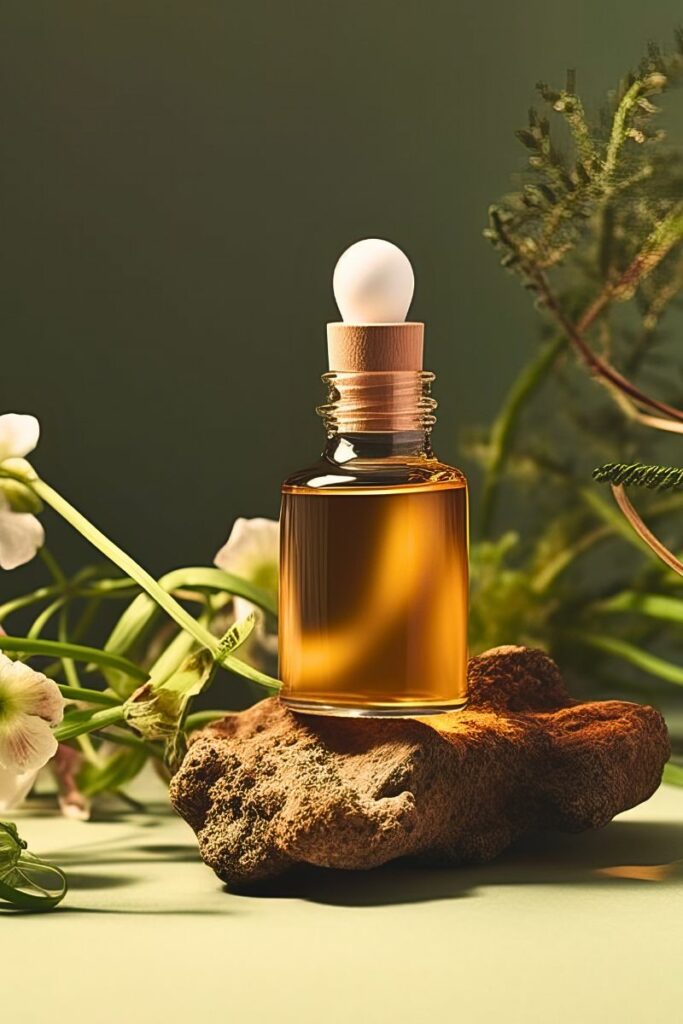
Disclaimer: This is not medical advice. Information and statements shown here are for educational and informational purposes only and are not to replace the advice of your healthcare professional.
This post may include affiliate links. Please refer to our disclaimer for full disclosure.
For blemish-prone skin, the key is finding a balance. Your skin needs enough hydration to prevent dryness, as dry skin can lead to overproduction of oil, making breakouts worse. At the same time, the moisturizer shouldn’t be too rich or oily, as this can leave your skin feeling greasy and clog pores further.
Natural moisturizers with non-comedogenic ingredients are an excellent solution. They provide gentle hydration, soothe irritation, and support the skin’s barrier, which is essential for maintaining healthy, clear skin. Ingredients like aloe vera, jojoba oil, and rosehip oil are especially effective, as they hydrate without blocking pores or triggering acne.
In this article, we’ll explore the best natural moisturizers for acne-prone skin. You’ll also find a simple DIY recipe for a homemade solution and a professional product recommendation that’s perfect for sensitive skin. Whether you struggle with an oily T-zone, dry patches, or combination skin, there’s a solution here to help you achieve smoother, healthier skin.
Why Acne-Prone Skin Still Needs Moisturization
Many people with acne-prone skin think skipping moisturizer is a good idea, but this can make things worse. When your skin becomes too dry, it compensates by producing more oil, leading to clogged pores and even more acne breakouts. Finding the perfect moisturizer that balances hydration without adding excess oil is one of the most important things in a skincare routine.
Hydration helps maintain a healthy skin barrier and reduces dryness, irritation, and redness. A good moisturizer prevents water loss from the stratum corneum, the outermost layer of skin, and keeps it functioning properly. Without enough oil or hydration, the skin can become inflamed and prone to acne-causing bacteria. Using active ingredients like salicylic acid or tea tree oil in combination with a non-comedogenic moisturizer can be an excellent addition to acne treatment.
Natural face moisturizers with organic ingredients like aloe vera, tamanu oil, and jojoba oil are great options for blemish-prone skin. These ingredients soothe inflammation, calm acne-causing bacteria, and provide hydration without clogging pores. Shea butter, sunflower oil, and castor oil are all rich in fatty acids and botanical extracts, are excellent choices for restoring the skin’s barrier and locking in moisture. Argan oil is another favorite oil for acne-prone skin because it delivers hydration and anti-inflammatory benefits without a greasy feel.
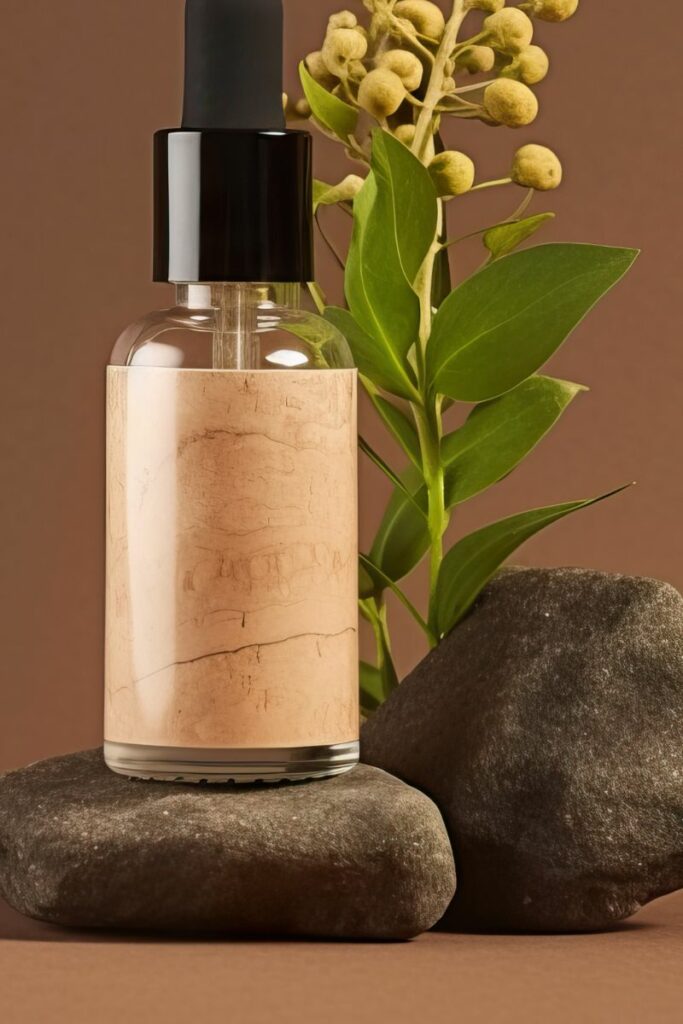
When choosing the right moisturizer, check the comedogenic rating to ensure it won’t clog pores. Avoid heavy, pore-clogging oils like coconut oil or mineral oil, which can worsen acne.
Remember, applying moisturizer to slightly wet skin can improve absorption and maximize hydration. Using a lightweight day cream in the morning and a richer option at night, like an organic moisturizer with jojoba oil or witch hazel, can make a major difference.
By focusing on the right ingredients and avoiding alcohol-based preparations or silicone derivatives, you can create a skincare routine that supports your acne treatment while keeping your skin soft and healthy.
Best Ingredients for Moisturizing Acne-Prone Skin
Finding the right moisturizer starts with knowing the best ingredients for acne-prone skin. These natural and effective options hydrate your skin while helping to prevent breakouts and reduce irritation.
Jojoba Oil
Jojoba oil is one of the best natural face moisturizers for balancing oil production. It mimics your skin’s natural sebum, delivering hydration without clogging pores. This makes it an excellent choice for combination skin and areas prone to excess oil, like the T-zone.
Aloe Vera
Aloe vera is lightweight, soothing, and perfect for calming redness and irritation. It hydrates gently and absorbs quickly, leaving the skin soft and refreshed without a greasy feel.
Rosehip Oil
Rosehip oil is a non-comedogenic option that won’t clog pores. It is rich in vitamins A and C, which promote skin repair, reduce dark spots, and improve uneven skin tone. It also contains fatty acids that nourish and hydrate acne-prone skin.
Hyaluronic Acid
Hyaluronic acid is a hydration powerhouse, locking in moisture without clogging pores. This ingredient is perfect for all skin types, especially sensitive and acne-prone skin, and it helps maintain a healthy skin barrier.
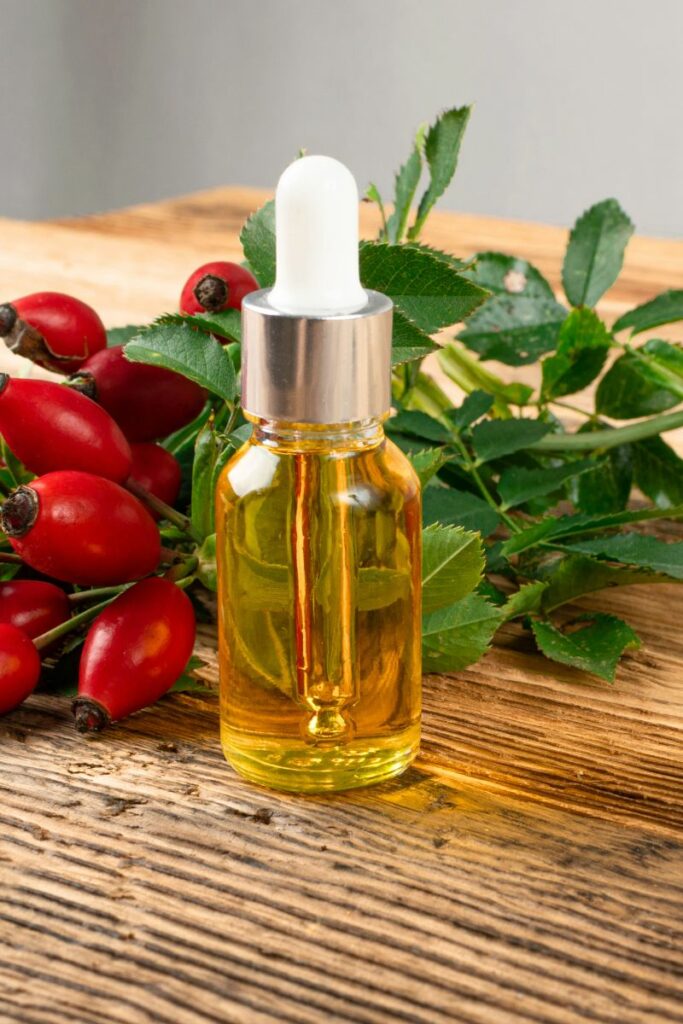
Tea Tree Oil (Optional)
Tea tree oil is well-known for its antibacterial and anti-inflammatory properties. Adding a small amount to your routine can help fight acne-causing bacteria and reduce redness, but it’s best for spot treatments or diluted use.
Niacinamide
Niacinamide is a multitasking ingredient that reduces redness, inflammation, and excess oil. It strengthens the skin barrier and helps prevent irritation, making it ideal for acne-prone and sensitive skin.
Castor Oil
Castor oil has antimicrobial properties that help fight acne-causing bacteria. It deeply moisturizes while promoting healthy skin regeneration, making it a great addition for repairing damaged or irritated skin. Use it sparingly, as its thicker consistency is best suited for targeted areas.
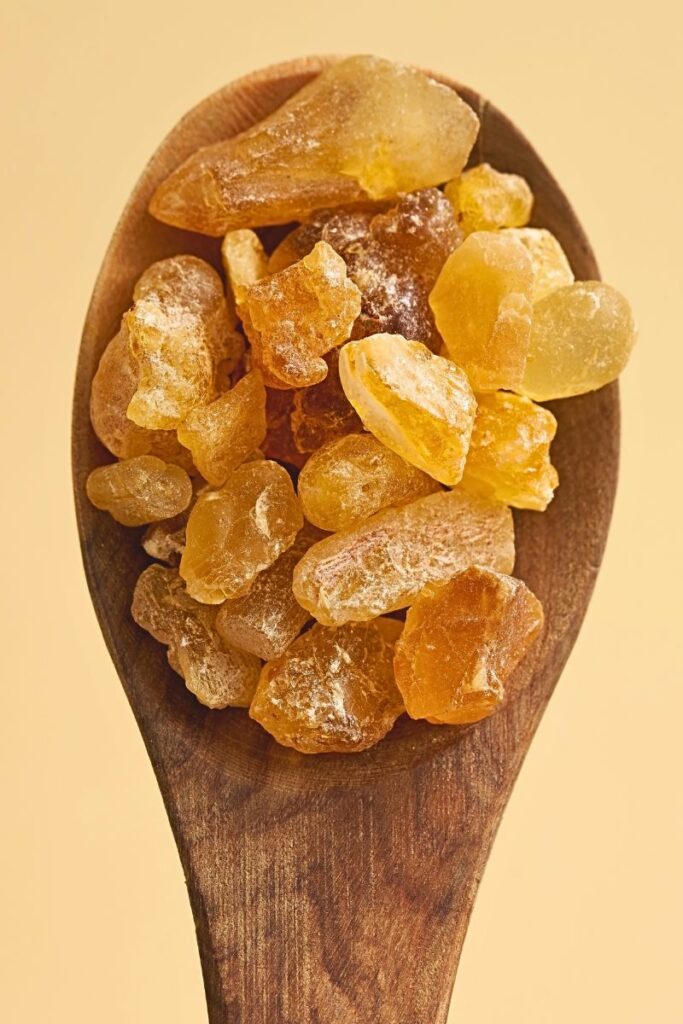
Frankincense
Frankincense, often found as an essential oil or resin, is a potent ingredient for reducing inflammation and soothing irritated skin. It helps diminish fine lines, improve elasticity, and repair the skin barrier. Its anti-inflammatory properties make it a calming choice for acne-prone skin.
These ingredients work together to create a healthy balance of hydration and oil control, making them an excellent choice for blemish-prone skin. Choose products with these key ingredients for a smoother, healthier complexion.
DIY Natural Facial Moisturizer for Acne Prone Skin
Ingredients
- 2 Tbsp aloe vera gel
- 1 tsp jojoba oil
- 1 tsp rosehip oil
- 2 drops tea tree essential oil optional for acne-fighting properties
- ½ tsp vegetable glycerin
Instructions
- Mix all the ingredients in a clean bowl until well combined.
- Transfer the mixture into a small, airtight container to keep it fresh.
- Apply a pea-sized amount to clean, damp skin in the morning and evening. Gently massage until absorbed.
Notes
-
- Always perform a patch test before using a new product to check for any allergic reactions.
-
- Adjust the recipe if you have extra dry or oily skin by increasing or decreasing the jojoba or rosehip oil.
-
- If you prefer a low-oil option, omit the tea tree and rosehip oil, focusing on aloe vera and glycerin for lightweight hydration.
Benefits of This DIY Natural Facial Moisturizer for Acne Prone Skin
- Hydrates: The aloe vera gel and glycerin lock in moisture without leaving your skin greasy.
- Soothes: Rosehip oil and aloe vera calm redness and irritation, making this blend perfect for sensitive skin types.
- Balances Oil: Jojoba oil mimics your skin’s natural oils, preventing overproduction and keeping your T-zone under control.
- Prevents Breakouts: Tea tree essential oil fights acne-causing bacteria, helping to keep your skin clear.
Storage Instructions
Store your DIY moisturizer in a cool, dry place away from direct sunlight. An airtight container helps maintain freshness and prevents contamination. Use within 1-2 weeks for the best results.
How To Give It A Longer Storage Life
To extend the storage life of this moisturizer, add 1-2 drops of natural preservative, such as Leucidal Liquid. This natural preservative can help prevent the growth of bacteria and mold, allowing the moisturizer to last up to 4-6 weeks when stored properly. Refrigeration can also help extend its shelf life further.
Best Natural Facial Moisturizer for Acne Prone Skin: Fountain of Youth Face Oil by Planted Herbals
Key Ingredients
- Jojoba Oil (Simmondsia chinensis): Hydrates deeply and balances the skin’s natural oil production, making it ideal for acne-prone skin.
- Castor Oil (Ricinus communis): Moisturizes while promoting healthy skin regeneration, leaving skin smooth and refreshed.
- Frankincense Resin (Boswellia serrata): Helps reduce fine lines, improve skin elasticity, and support a youthful complexion.
- Rose Buds (Rosa centifolia): Soothes irritation, balances oil production, and promotes an even skin tone.
- Rose Essential Oil (Rosa damascena): Known for fighting acne, reducing scars, and deeply nourishing the skin for a radiant glow.
- Frankincense Essential Oil (Boswellia carterii): Calms and renews the skin, providing revitalizing benefits that enhance overall skin health.
Why It’s Perfect for Acne-Prone Skin
- Made with non-comedogenic ingredients that hydrate without clogging pores, helping to prevent acne breakouts.
- Contains powerful antioxidants and anti-inflammatory properties that reduce redness and soothe sensitive skin.
- Free from synthetic chemicals and parabens, making it safe for all skin types, including sensitive and blemish-prone skin.
- Versatile formula that works well as a lightweight daytime moisturizer or as part of a nighttime skincare routine for deeper nourishment.
The Fountain of Youth Face Oil is a great addition to any skincare routine, offering hydration, balance, and protection using only natural, skin-loving ingredients.
Tips for Using Moisturizers on Acne-Prone Skin
- Apply moisturizer to slightly damp skin after cleansing. This helps lock in hydration and ensures the moisturizer absorbs better.
- Use a lightweight formula in the morning to avoid a greasy feel during the day. If your skin needs extra nourishment, opt for a richer moisturizer at night.
- Keep your routine simple. Overloading your skin with too many products can lead to irritation or clogging pores, making acne worse.
- Always patch test new products before using them all over your face. This helps you avoid potential allergic reactions or breakouts from ingredients your skin may not tolerate.
These tips can help you get the most out of your moisturizer while keeping your skin clear and healthy.
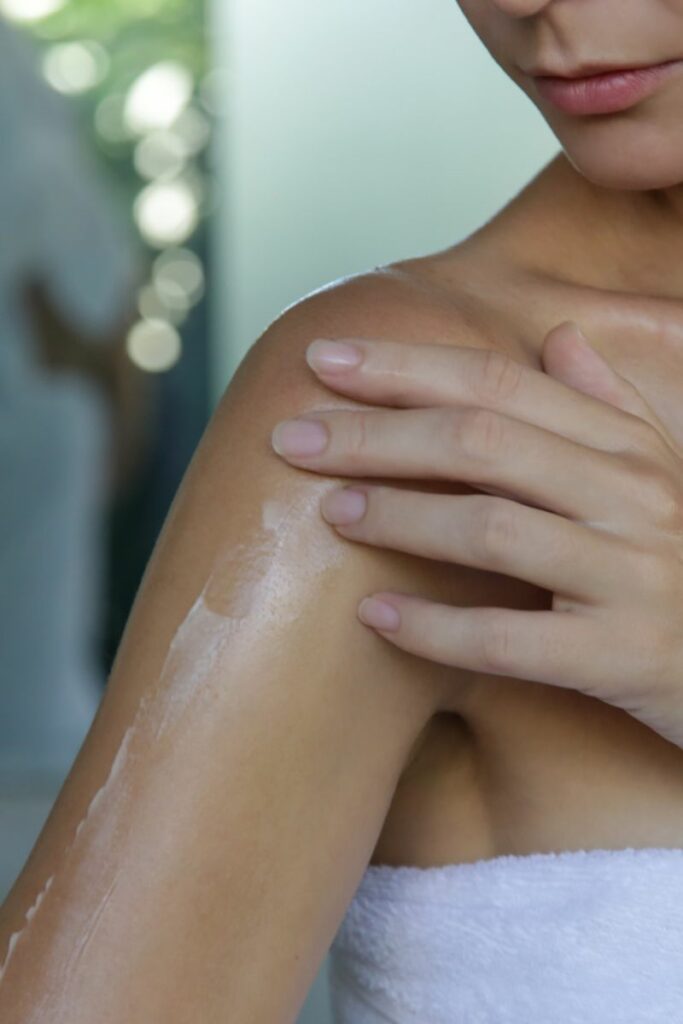
FAQs About Natural Facial Moisturizers for Acne-Prone Skin
Can natural oils clog pores?
Not all oils clog pores. In fact, many natural oils are excellent for acne-prone skin. Non-comedogenic oils like jojoba, argan, and rosehip oils are some of the best options because they hydrate without causing breakouts. These oils are lightweight, absorb quickly, and mimic the skin’s natural oils, helping to balance sebum production. Avoid heavier oils like coconut oil or mineral oil, which can clog pores and worsen acne.
Can I skip moisturizer if I have oily skin?
No, skipping moisturizer is not a good idea. When your skin lacks moisture, it can overcompensate by producing even more oil, leading to clogged pores and breakouts. Using the right moisturizer, especially one with non-comedogenic and hydrating ingredients like aloe vera or hyaluronic acid, helps balance oil production. A well-moisturized skin barrier is less likely to become irritated, reducing the risk of acne and promoting overall skin health.
How often should I apply moisturizer?
You should apply moisturizer twice daily—once in the morning and once at night. This routine ensures your skin stays consistently hydrated and protected. In the morning, use a lightweight, non-greasy moisturizer that works well under sunscreen or makeup. At night, opt for a slightly richer formula to repair and nourish your skin while you sleep. Consistent use helps maintain the skin’s natural balance and prevents dryness or irritation.
Conclusion
Moisturizing acne-prone skin is a vital step in maintaining a healthy, balanced complexion. Many people with acne-prone skin mistakenly skip moisturizers, fearing they’ll clog pores or worsen breakouts. However, the right moisturizer can actually do the opposite—it keeps your skin hydrated, strengthens the skin barrier, and reduces irritation, all of which help prevent acne. Using gentle, non-comedogenic ingredients like aloe vera, jojoba oil, and hyaluronic acid ensures your skin gets the hydration it needs without any pore-clogging effects.
For those who prefer a personalized, hands-on approach, the DIY natural moisturizer recipe shared in this article is an easy and affordable way to care for your skin. It’s tailored to provide hydration while soothing inflammation and minimizing breakouts.
On the other hand, if you’re looking for a professionally formulated product, the Fountain of Youth Face Oil combines the perfect blend of non-comedogenic oils and acne-fighting ingredients. It’s lightweight, gentle on sensitive skin, and designed to promote clear, healthy, and radiant skin.
Whether you choose the DIY route or opt for the Fountain of Youth Face Oil, incorporating the right moisturizer into your daily skincare routine is one of the most important steps to achieving smoother, healthier skin.
